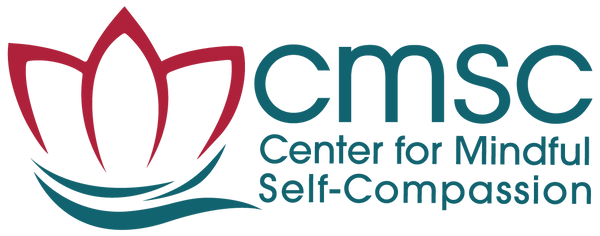
Foundations of Mindful Self-Compassion
Foundations of Mindful Self-Compassion Video Series
Foundations of Mindful Self-Compassion Video Series
Couldn't load pickup availability
The Introduction to Mindful Self-Compassion workshop is in a 2.5-hour pre-recorded format with Kristin Neff, Ph.D. Co-founder of the Center for Mindful Self-Compassion and Co-developer of the MSC course.
Through lecture and experiential exercises, you gain practical skills to help bring self-compassion into your daily life and how to motivate yourself with kindness rather than criticism.
This course is relevant for the general public as well as for practicing mental health professionals and was recorded with a live audience on Zoom.
This is a great place to start if you are new to self-compassion. Your attendance will qualify you to attend other advanced workshops like Fierce Self-Compassion and Self-Compassion: An Antidote to Shame through the Center for Mindful Self-Compassion.
Videos in this workshop are not downloadable but will be available with lifetime access for unlimited viewing.
Share


Welcome to the Introduction to Mindful Self-Compassion Workshop
The Foundations of Mindful Self-Compassion Workshop includes essential concepts and practices from the 8-Week Mindful Self-Compassion program in a 2.5-hour pre-recorded format. Through lecture and experiential exercises, you will gain practical skills to help bring self-compassion into your daily life and learn how to motivate yourself with kindness rather than criticism.
Who Should Attend
All are welcome!
If you are new to self-compassion, this workshop is a great place to start. Your attendance will qualify you to attend our other advanced workshops like Fierce Self-Compassion and Self-Compassion: an Antidote to Shame through the Center for Mindful Self-Compassion.
Please be aware that we offer an 8-Week Fierce Self-Compassion Course as well as an 8-Week Self-Compassion for Shame course, but unfortunately, this workshop does not suffice as a pre-requisite for those courses, only the workshop versions.
Access to Materials
There is unlimited access to the content in this workshop once you register.
Benefits of Mindful Self-Compassion
-
What is Self-Compassion?
Self-compassion involves responding in the same supportive and understanding way you would with a good friend when you have a difficult time, fail, or notice something you don’t like about yourself. There are three elements which comprise self-compassion: Self-kindness vs. self-judgment, common humanity vs. isolation, and mindfulness vs. over-identification.
-
Proven Benefits
In daily life, self-compassion involves noticing when we’re having a hard time, and rather than judging and criticizing ourselves, we respond to our pain with care and kindness, just as we would a dear friend. There’s now an impressive and growing body of research demonstrating that relating to ourselves in a kind, friendly manner is essential for emotional wellbeing. And though self-compassion is not often the first response for many of us during moments of personal struggle, this skill can be trained, even for those of us who did not learn it as children.
FAQs & Important Information
Important Info: Mindful Self-Compassion is not a substitute for Therapy
Our programs are designed to teach participants the tools needed to develop and cultivate a mindfulness and self-compassion practice.
It is not a substitute for mental health care, personal therapy or medical treatment.
Personal safety and emotional wellbeing are the foundation of self-compassion training and you are primarily responsible for your own safety.
Teachers and facilitators are not expected or able to provide medical and/or psychological care. Course experiences may bring up challenging memories or feelings.
If you have a history with a serious mental health condition or other concerns you think may impact your ability to take this course, please contact CMSC or your healthcare professional to determine if this course is right for you. Your personal contact information may be used in the event the teacher or facilitator reasonably determines a need to call emergency services on your behalf.


